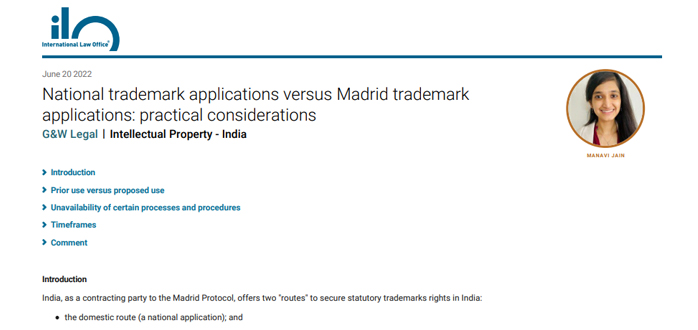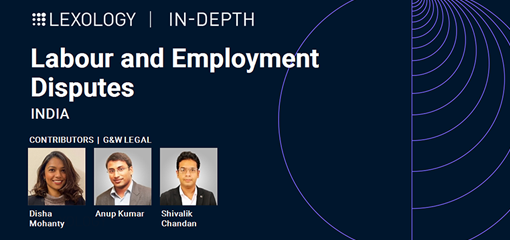
Introduction
India, as a contracting party to the Madrid Protocol, offers two “routes” to secure statutory trademarks rights in India:
- the domestic route (a national application); and
- the Madrid route (a Madrid application).
The features, processes, fees involved and scope of protection afforded by the two routes largely overlap – at least theoretically – but they have slight differences from a practical standpoint. The practical considerations are all largely contextual – when it comes to choosing one route over the other, the facts of each case should be scrutinised against such considerations.
Of course, there are some generic factors in favour of the Madrid route – for example, Madrid applications are centralised and enable the applicant to manage numerous jurisdictions effectively and simply. There are also some generic factors in favour of national applications – for example, the life and fate of all the designate-jurisdictions are dependent on that of the basic application. Beyond these known factors, this article lists a few practical considerations that may make the choice between a Madrid application and a national application a notch easier (or at least better informed).
Prior use versus proposed use
National applications for trademarks in India can be filed either on a proposed use basis (also known as an “intent to use” basis) or by relying on prior use of the mark in India. If the latter is chosen as the use basis, the rights that accrue upon registration would stretch back to the claimed date of prior use. For Madrid applications, however, the option of choosing the use basis is not available at the time of filing the application. As a result, all Indian designates of Madrid applications are filed on a proposed use basis by default.
While it is possible to amend the default proposed use basis to add a prior use claim even in the later stages of the prosecution process (which can currently be done by filing a domestic statutory form for amendment), this entails additional costs and may result in some delays.















